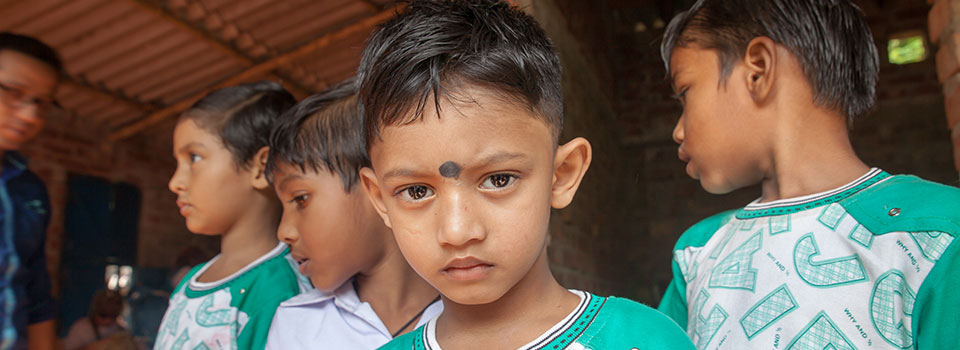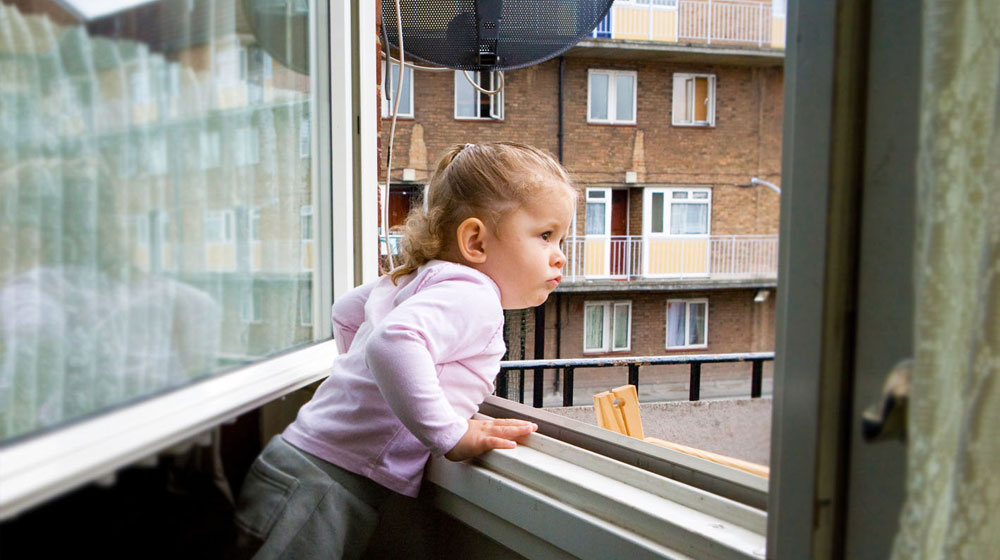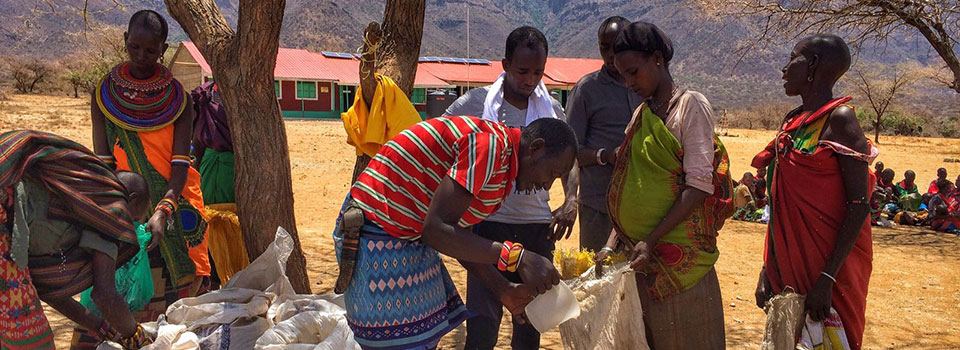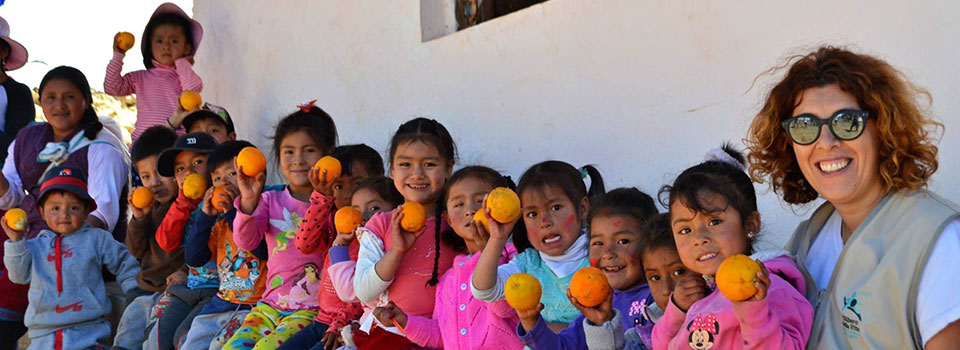L’Albero della Vita is present in Europe and in developing countries such as India, Kenya, Perù, Haiti, Indonesia.
Asia
Intervention areas in India are 3: education, protection and development, with actions that promote living conditions improvement for the whole community.
In Baruipur, atown 30 km away from Calcutta, the foundation is committed to protecting the most vulnerable children by addressing the issue of disability.
In Nepal, the goal is to constantly strengthen local associations and families after the tragic earthquake.
In Bangladesh, the projects are aimed at providing drinking water and water for agricultural use in areas particularly affected by natural disasters and soil salinization.
Education
The SAD project also provides health and nutritional support to the children apart from education support. The aim of the health project is to ensure that the sponsored children maintain good health throughout the academic year. The project aims to prevent and reduce poor health condition so that this factor does not become a reason for absenteeism from school and learning centre and/or dropout.
Under this project all the children are provided with nutritious pack of supplementary diet on quarterly basis. In order to track the health condition of the children and to ensure that the children receive regular medical assistance, quarterly medical check-ups are held by engaging registered medical practitioners. They are provided with free medicines as per the doctor’s prescription. Health awareness sessions are held at the learning centres with the children. The awareness sessions focus on dissemination of information on developing hygiene behaviour and prevention methods for communicable, vector borne and water borne diseases. The children are also provided with a quarterly toiletry kit consisting of soaps, tooth brush, paste, detergent, shampoo, etc.
Beneficiaries 426 children, between the age group of 6-18 years
Partner DBDOC
Project location Kolkata, Nadia, Murshidabad, North24 Parganas & Darjeeling
Duration 12 Months
Project cost € 78,758.00
However, residences of the sponsored children are quite scattered. Therefore, all of them do not come under the purview of the free learning centres on regular basis. Hence, they visit their nearby centres twice a week. The 400 non-sponsored children receive the support of only free coaching in the 31 learning centres.
On the health front, all the children are provided with nutritious pack at the learning centre. In order to track the health improvement of the children and to ensure that the children receive regular medical assistance, quarterly medical check-ups are held by engaging registered medical practitioners. Community health camps are also organized to support the family members of the children, non-sponsored children residing in the area and the community at large. They are provided with free medicines as prescribed by the doctor. Health awareness sessions are held at the learning centres with the children and also at the villages, involving the parents and other villagers. At the awareness sessions they are provided information on adopting hygiene behavior and ways and means to prevent communicable, vector borne and water borne diseases. The children are also provided with a quarterly toiletry kit consisting of soaps, tooth brush, paste, detergent, shampoo, etc.
Beneficiaries 340 children, between the age group of 6-18 years
Partner Rural Aid
Project location Dhupguri, West Bengal
Duration 12 Months
Project cost € 54,788.00
The project team also ensures that the children and their family members are able to access government schemes and entitlements. At the same time, the Project staff members also provide referral and linkage building support with that of Government Vocational Trainings, Higher Education Scholarship Schemes, etc. This facility is available to the children who have successfully completed class 12 during 2015 and 2016, as well as to the children who have dropped out before completion for some reason.
The SAD project, apart from providing education support to the 262 children, also provides nutritional support. The aim of the health project is to ensure that the sponsored children maintain good health throughout the academic year. The project aims to prevent and reduce the instances of poor health condition as the reason for absenteeism from school and learning centre and/or dropout. The project also supports their family members and also the community at large to maintain good health status. Under this project all the children are provided with nutritious pack at the learning centre. In order to track the health condition of the children and to ensure that the children receive regular medical assistance, quarterly medical check-ups are held by engaging registered medical practitioners. They are provided with free medicines as prescribed by the doctor. Health awareness sessions are held at the learning centres with the children and also at the villages, involving the parents and other villagers. At the awareness sessions they are provided information on developing hygiene behavior and on ways to prevent communicable, vector borne and water borne diseases. The children are also provided with a quarterly toiletry kit consisting of soaps, tooth brush, paste, detergent, shampoo, etc.
Beneficiaries 260 children, between the age group of 6-18 years
Partner Nishtha
Project location Baruipur, South 24 Parganas, West Bengal
Duration 12 Months
Project cost € 50,012.00
The aim of the health aspect of the project is to ensure that the sponsored children maintain good health throughout the year. It also seeks to prevent and reduce the instances of poor health condition as the reason for absenteeism from school. In order to track the health improvement of the children and to ensure that the children receive regular medical assistance, quarterly medical check-ups are held by engaging registered medical practitioners. The project ensures that the sponsored children receive three times meal every day, having proper nutritional value. During every quarter the children are provided with toiletries. The boarding in charge facilitates and ensures that the children regularly use the toiletries.
Beneficiaries 43 children, between the age group of 6-18 years
Partner Pally Unnayan Samity
Project location Panchamkhanda, South 24 Parganas, West Bengal
Duration 12 Months
Project cost € 20,174.00
Protection
Beneficiaries 350 families
Partner NISHTHA
Project location South 24 Parganas
Duration 3 years
Project cost €98,606
Beneficiaries 6000 teenager girls and 60 younger girls
Partner NISHTHA
Project location South 24 Parganas
Duration 3 years
Project cost € 45,490
Beneficiaries 2700
Partner Don Bosco Development Society Calcutta
Project location Murshidabad
Duration 2 years
Project cost € 40,000
Beneficiaries 91 disabled families
Partner Kenduahdihi Bikash Society
Project location Bankura
Duration 1 year
Project cost € 8,630
Beneficiaries 110 children
Partner Palli Unnayan Samity
Project location South 24 Parganas
Duration 4 years
Project cost € 79,730
Beneficiaries 6,650
Partner Sanlaap & Daghagia Social Welfare Society
Project location North 24 Parganas
Duration 3 years
Project cost € 180,285.07
Along with making the community aware at the grassroots level, the project will also involve different government and administrative bodies to ensure sustainability and visibility of the program. The project intends to activate School Committees and Parent Teachers Associations to address the issue of drop outs within the community, to create the attitude of parents towards sending their children to middle school, as the dropout rate is the maximum after completion of the Primary education. The project looks towards building Child Protection Committees at the village level such that there is a local network that is operational to ensure that the child goes to school, that the child is not hired for cheap labour and that the child does not undergo unsafe migration. The project will also build linkages between the local administrative blocks, the community and the NGOs. The project also seeks to empower children making them aware of their own rights and their protection issues.
Beneficiaries 2800
Partner Phyu Sin Saydanar Action Group (PSSAG)
Project location Kayin State, Myanmar
Duration 6 months
Project cost € 8,159
In this critical context, FADV proposes to start a School Renovation Project for primary schools. The project will be implemented in 7 schools located in 7 different villages for 7 schools of Hpapun Township, Kayin State. School Renovation means expansion, repairing, building stronger & durable structures, moving the classrooms to safer place (to avoid flooding) and changing the design to make way for child friendly school buildings.
Beneficiaries 708
Partner Phyu Sin Saydanar Action Group (PSSAG)
Project location Kayin State, Myanmar
Duration 6 months
Project cost € 12,988
Emergency
Beneficiaries 26094 population including 2215 families, 2766 children, 30 teachers and 160 officials
Partner Andrewspalli center for Integrated Development (ACID)
Project location Hingalganj in North 24 Parganas in West Bengal, India
Duration 30 months
Project cost €77,088.46
Beneficiaries 15481 population including 3096 families, 392 children, 30 teachers and 65 officials
Partner Centre for Development Service (CDS)
Project location Pattamundai block, Kendrapada district, Odisha, India
Duration 30 months
Project cost € 60,359
Beneficiaries 11261 population including 2215 families, 615 children, 30 teachers and 40 officials
Partner Social Empowerment and Agriculture Development Agency (SEADA)
Project location Bhogarai Block, Balasore District, Odisha, India
Duration 30 months
Project cost € 60.192,31
Beneficiaries 21085 population including 1017 children, 61 teachers and 60 officials
Partner Gramya Vikash Mancha (GVM)
Project location Kamrup (Rural) district of Assam, a state in north eastern region of India
Duration 30 months
Project cost € 63,200.13
Beneficiaries 4239 children including teachers and officials
Partner Nepal Don Bosco Society
Project location 7 most affected VDCs in Lalitpur district of Nepal
Duration 6 months
Project cost € 50,791.15
Beneficiaries 3502 children including teachers and officials
Partner ADRA Nepal
Project location 12 most affected VDCs in Kavrepalanchok district of Nepal
Duration 7 months
Project cost € 33,005.31
Partner Community Development and Research Organization (CORD) Nepal
Project location 8 most earthquake affected Village Development Committees in Kavrepalanchowk District of Nepal
Duration 8 months
Project cost € 59,973.45
Beneficiaries 557 children who attend the Mount Carmel School of the Carmelite Fathers in Dhupguri
Partner Santa Teresa Provincial Delegation of Carmelite Fathers
Project location St. Paul Centre, Dhupguri, Jalpaiguri district, West Bengal, India
Duration 3 years
Project cost € 45,971
Development
Beneficiaries 102 teenage girls and women aged between 18-35
Partner Santa Teresa Provincial Delegation of Carmelite Fathers
Project location Dhupguri, Jalpaiguri district, West Bengal, India
Duration 3 years
Project cost € 69,242
Beneficiaries 300 families within the villages of Lakikanto, Dhupguri, Gairkata and Huldibari
Partner Santa Teresa Provincial Delegation of Carmelite Fathers
Project location Dhupguri, Jalpaiguri district, West Bengal, India
Duration 28 months
Project cost € 46,000
|
The aim of the project is to contribute to the reduction of poverty level and social exclusion of marginalized rural households of Sonarpur Block. Major intervention under the project had been i) Establishing Self Help Groups (SHGs) for promoting savings-credit & income generation activities of women, ii) Creating new opportunities for income generation related to agriculture and allied activities, iii) Increase awareness on entitlements under government schemes, iv) Promoting community-level institution for ensuring sustainability. |
||||||||||
|
The strategies included livelihood diversification through enhancement of skill and knowledge, increasing market access, building social capital, ensuring government entitlements through linkage with govt. schemes etc.
The achievements of the project can be understood from the following figures:
96% of the project participants have successfully initiated livelihood activities e.g. rice cultivation, fishery, livestock rearing & small business through a grant support of Rs. 27 lakhs
All 330 participants have been included within 27 self help groups, of which 90% (299) started inter-lending.
Beneficiaries 900 vulnerable families residing in 6 Gram Panchayats in Gosaba and Hingalganj block
Partner Andrewspalli center for Integrated Development (ACID) in Hingalganj and Rajarhat PRASARI in Gosaba
Project location Gosaba in South 24 Parganas, Hingalganj in North 24 Parganas in West Bengal, India
Duration 27 months
Project cost € 203,104
Increase in capability of water management
Increase in Agricultural output
Introduction of alternative livelihood different from agriculture
Major strategies adopted in the project are:
Efficient management of water through improved access and availability
Increased agricultural production (using improved technology/variety for saline soil)
Promote alternative livelihood (different from agriculture)
Community based Natural Resource Management.
Positive impact of the initiatives are evident from the first year itself: Some of the success stories are:
‘Five-Square model for reduction of soil salinity’, ‘Floating Vegetable Garden’-alternative agriculture in waterlogged region, ‘Rain shelter for off-season vegetables’- for ensuring increased income to the farmer, ‘Low-cost feed preparation for fish cultivation’ etc. Demonstration of these activities have been carried out successfully and created opportunities for replication through government or other international organizations.
30 self help groups have been formed with 285 poor & ultra-poor women
2 km area of embankments have been covered through plantation of 70,000 mangrove saplings
A farmer’s information and service centre and a market shed has been constructed at one block for ensuring improved knowledge & access to agricultural as well as market information and service
461 participants received training and input support for agriculture and domestic breeding
Beneficiaries 2690 participants covering India & Bangladesh
Partner Rajarhat PRASARI in Gosaba, Andrewspalli center for Integrated Development (ACID) in Hingalganj & DALIT, Bangladesh
Project location Gosaba in South 24 Parganas, Hingalganj in North 24 Parganas in West Bengal, India & Tala & Asasuni Upazila of Satkhira District, Bangladesh
Duration 36 months
Project cost € 224,127.41
After earthquake, the lack of livelihood opportunities has triggered the vulnerabilities of people affecting their livelihood and deteriorating the overall socio-economic condition of the families. The project has the main goal of promoting resilient livelihood for the most vulnerable farmers of Lalitpur district of Nepal through the value chain development of lime and mandarin.
The 600 direct farmers (women and men) are being capacitated through different technical trainings in all the phases of the first segment of the valuechain: preparation of land, slope stabilization, micro-irrigation, orchards development and inter-cropping. The capacity building part is being sustained by the provision of inputs and set-up of demonstration plots, in order to show practically how to manage the new techniques.
Beside these activities, the project also supports the farmers in creating a cooperative that are in charge of all the phases of the value chain. The project staffs constantly works with the cooperative and the relevant stakeholder to develop market linkages to sell the final product (lime and mandarin) but also the sapling that are being produced in the screen house nursery which are set-up by the project. Moreover the cooperative is being supported in the post-harvesting handling, thanks to the setting-up of 3 collection centers and 3 cellar storage facilities, in the business development and in having access to financial institutions.
Beneficiaries Direct Beneficiaries: 600 farmers, Indirect Beneficiaries: 5269 participants from 249 households
Partner Ecards
Project location 6 Village Development Committees (VDC) of Lalitpur, Nepal
Duration 36 months
Project cost € 209.879,68
Europe
Intervention in Europe is focused on migration and the critical issues linked to this phenomenon, with the aim to offer substainable solutions to ensure well being to disadvantaged groups. Main themes to commit resources on are unaccompanied minors, migrant families, family foster care.
Africa
Minors protection is one of the main areas of intervention in African country. In Kenya L’Albero della Vita supports many centers for minors and creates a very strong working relationship with departments and local authorities. The goal is to improve hospitality for children and young people aged 0-16 years. These beneficiaries are defined as “in conflict with the law”, which means condemned by the judge for more or less serious crimes, and included in a three-year rehabilitation program. Actually, many of them are just street kids, orphans and migrants from the countryside.
Latin America and the Caribbean
In Peru the Foundation is committed with projects of local development, food security and health. The work carried out in the Ancash region in order to strengthen the supply chain of an Andean lupine, favors the territorial development of 400 peasant families in extreme poverty. A health project for the most vulnerable population is active in the remote villages of Peruvian Amazon. A project aimed at fighting violence against women and children as well is active in Amazon.
In Haiti, the support from 2010 of the only clinic in WafJeremie, degraded and violent shantytowns, helps to protect in particular mother and child health. Support to a shelter is active for disadvantaged children (over 100 orphans aged 0-12) who have lost their parents for AIDS or their mothers during childbirth or for violent death.




